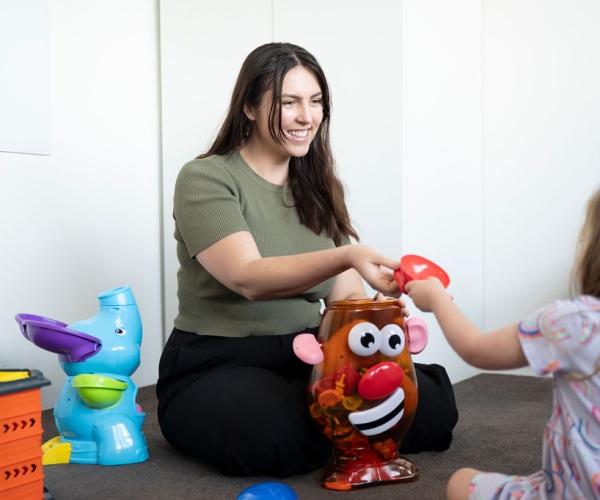How Long Does Therapy Take? Evidence from Research
One of the most common questions parents ask when their child is starting therapy is, “How long will this take?” The answer varies depending on individual needs, therapy goals, and the nature of the challenges being addressed. Research shows that more sessions lead to better outcomes and consistent attendance supports meaningful progress.
Factors such as the type of condition, severity of presenting concerns, number of goals and application of therapeutic work outside of sessions can affect the number of sessions your child requires. Other factors, such as your child’s age and engagement, and parental involvement, can influence how your child progresses. Your child’s therapist will work with you to tailor an approach that aligns with your child’s goals and will advise you about the typical treatment based on their needs. As therapy progresses, sometimes new goals and areas of focus can emerge, which can impact treatment duration.
Whilst there is no ‘magic number’ that applies to all children, the research suggests that for effective treatment outcomes in psychological therapy:
- Mild to moderate conditions or presenting difficulties can often see effective outcomes in 12 – 20 sessions.
- Children with multiple, complex or co-occurring challenges may benefit from longer-term therapy, e.g. 20+ sessions.
- Consistency, home practice, and caregiver involvement are crucial for long-term success.
At PHC, we encourage booking sessions in advance to maintain consistency and ensure appointments align with your child’s treatment plan. Our clinicians can get very busy and scheduling ahead helps you stay on track so that your child’s outcomes aren’t delayed.
The Importance of Consistent Attendance
Regular attendance is key to effective therapy. Attending sessions consistently provides the structure necessary to maintain your child’s progress and integrate therapeutic work into daily life. Missing sessions can disrupt momentum, making it harder to build upon previous work and slowing down the overall process.
Research shows that those who attend therapy regularly experience greater long-term benefits compared to those who miss sessions or drop out prematurely. Establishing a routine where therapy is prioritised and consistently attended fosters a more collaborative and productive therapeutic process to support lasting change.
Patterns of Change in Therapy
Therapeutic progress is rarely linear and lasting change often takes time. Some children may display early improvements, followed by plateaus or phases of slower progress before commencing another growth phase. Some children make steady progress while others experience ups and downs depending on factors such as age, condition, motivation and environmental supports.
Therapeutic work can be uncomfortable and difficult, though it is often essential to experience such discomfort to make meaningful change. Your therapist will often assign your child tasks to do between sessions which aid in supporting progress. Consistent attendance and engagement is key in moving towards lasting and meaningful change.
How do I know that my child is making progress?
At the practice, we track your child’s progress to ensure that they are moving towards their goals. Psychologists track the progress of your child using a combination of standardised assessments, clinical observations, and collecting feedback from you, your child and others where appropriate.
Progress can vary, where some children may see fast improvements in some areas, while others may see more gradual change with long-term efforts focused on moving towards their goals. As therapy progresses, your child will be supported to transfer learned skills from therapy sessions. Generalisation of skills and relapse prevention is important to support maintenance of therapy gains.
The Importance of a Final Session
When parents start seeing improvements in their child they may wonder whether therapy should continue. Properly concluding therapy is an essential part of the process. Children have better outcomes and a reduced risk of difficulties re-emerging when they complete treatment rather than stopping after some improvements.
A final session provides an opportunity to reflect on progress, generalise learned skills, and establish a relapse prevention plan for your child. The therapist may schedule review appointments to ensure maintenance of gains before concluding treatment. By ending therapy with intention, children leave with the tools and resilience to take on future challenges.
Your Child’s Therapy Journey at Prosper Health Collective
At Prosper Health Collective, we understand that each child’s therapy journey is unique. Our evidence-based approach ensures that treatment is tailored to your specific needs. Our top tips for getting the most out of therapy are:
- Follow the treatment plan and apply skills outside of session
- Attend regularly – consistency is key
- Engage in relapse prevention
If you’re considering therapy or in the process of engaging, know that you are taking an important step and we’re here to support you every step of the way.
